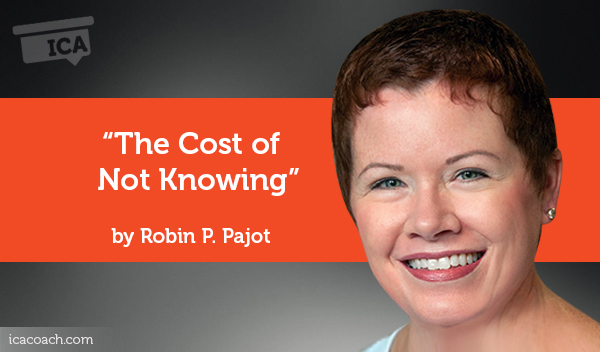
Research Paper By Robin P. Pajot
(Career Coaching, UNITED STATES)
For college students in United States, the cost of not knowing their strengths and natural gifts is exorbitant, both financially and psychologically. And the cost is rising.
Declaring—and Changing—Majors
Not knowing natural strengths means students can start college on an unclear path. Between 20 and 50 percent of college students in the United States start their studies with an undeclared major (Gordon, 1995). But declaring a major doesn’t signal certainty of a path. 80% of college students change their major at least once, including 15% of juniors and 8.1% of seniors, according to the National Center for Education Statistics.
It sounds easy, but changing majors may not be as simple as filling out a form. Georgia Institute of Technology (GT) allows one unrestricted transfer of a major. Once a GT student completes 60 hours, a transfer is only permitted at the discretion of the college the student seeks to enter. Other universities have similar stipulations.
While changing can be hard, the cost of changing and delaying graduation is huge, and potentially becoming even higher. With the average expense of attending college and the lost income when staying in school, each additional year in college can cost $50,000. Worse yet, the cost is increasing at a growing number of universities.
According to www.igrad.com, colleges are implementing an “excessive credit hour rule.” The rule is designed to penalize students taking classes beyond the needed hours for an undergraduate degree. The universities see those students as taking away space from others who have decided on a major.
Schools like Florida State University are charging an excess fee as much as 50% for credits when a student has exceeded 20% of the credits needed to graduate. For instance, if a bachelor’s degree requires 120 credits, after 144 hours (20% above 120), the excess fee kicks in. (The exact amount is determined by the student’s school start date.)
The message is clear for students: choose the right major. Even better, choose the major before the tuition clock starts ticking.
Ill-Fitting Major
According to an article on LinkedIn titled “Five Signs That You Followed the Wrong Major and Career,” studies show that 75% of college graduates chose the wrong major. Their decisions are not necessarily based on research or self-reflection on their goals, values or natural gifts (Beggs, Bantham, & Taylor, 2008). Instead, students base decisions on family and peer influence, assumptions about introductory classes needed for the major, and potential job characteristics.
Choosing classes that aren’t the student’s strength can result in lower grades, which can also be costly. Repeating a class means paying for it twice. But taking it a third time? Texas A&M charges students an excess fee of $125 per credit for classes that are a three-peat. For a three-credit class, that extra fee amounts to $375. The repeated class could represent a path of study that isn’t the student’s best fit. In fact, congruence of a major with students’ personalities was a better predictor of their overall grade point average than their ACT scores (Jones, 2012).
Ill-Fitting Career
Once students have the degree, it signals to employers and the world who they are. The focus has been on earning admission into the best universities, choosing a major, graduating, and getting hired by the best companies. But worldwide, only 13% of people are engaged in their work, and the problem doesn’t end there.
According to an article on Huffpost Health Living titled “5 Ways Hating Your Job Can Ruin Your Health,” hating work can cause people to gain weight. The ill fit at work zaps the energy needed to make healthy choices, like exercise and healthy food options. Stress at work also “harms the immune system and increases the risk of depression.” And, it can rob people of sleep and increase the risk of serious illness, such as heart disease, type 2 diabetes and some forms of cancer.
The cost of not knowing a major to choose? The cost of choosing the wrong major? The cost of working in a field that isn’t the best fit? All of it is expensive, financially and physically. The price of working where natural gifts and talents can be used? Priceless.
References:
Beggs, J., Bantham, J., & Taylor, S. (2008). Distinguishing the factors influencing college students’ choice of major. College Student Journal, 42(2), 381–394.
Excess Credit Hour Surcharge. (n.d.). Retrieved February 28, 2016, from www.registrar.fsu.edu.
Gordon, V. N. (1995). The undecided college student: An academic and career advising challenge (2nd. ed.). Springfield, IL: Charles C. Thomas.
Kjerufl, A. (2014, March 26). 5 Ways Hating Your Job Can Ruin Your Health. Retrieved from www.huffingtonpost.com.
Krengel, T. (2015, April 20). Five Signs That You Followed the Wrong Major and Career. Retrieved from www.linkedin.com.
Maher, M. (2014, February 12). Fees for Your Degrees–How Changing Majors Could Cost You. Retrieved from www.igrad.com.